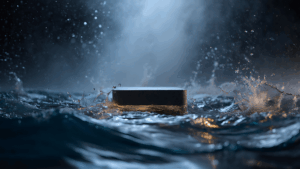We’re continuing our series, “Managing trade effluent in…”, with the Car Wash and Motor Vehicle Detailing industry.
Over 32.7 million cars drive in the UK. As a nation of car lovers, for many people, keeping a clean, pristine car is high on their agenda. However, battling the British weather and daily commutes quickly leads to dirty vehicles; so it’s not surprising that the average car is washed 8 times a year. According to the UK’s Car Wash Association, over 193 million cars are washed annually, generating an industry worth over £1 billion.
Trade effluent license
Trade effluent refers to the contaminated wastewater or run-off produced from business operations, including the washing and cleaning of vehicles. This wastewater cannot be disposed as domestic sewage or surface water.
The UK’s Environmental Agency for Pollution Prevention lawfully states that businesses in the car wash industry must hold a trade effluent license to dispose of liquid waste. Your water supplier can help by completing a trade effluent discharge application.
A trade effluent license permits car wash businesses with the right to dispose of liquid waste into the mains drainage systems (or combined sewer) to be immediately carried to sewage plants for treatment. Even if liquid wastewater is treated on-site before being released into the surface water or groundwater system, a permit is still required to comply with environmental regulations.
What generates car wash effluent?
In order to reduce car wash effluent levels, we must understand what processes generate this contaminated wastewater. Regardless of whether your car wash business primarily uses jet washing, hand washing, or conveyor/roll-over car washing (or a mixture of methods), you will accumulate effluent.
As soon as cleaning chemicals or wax products are added to fresh water, liquid waste is produced and must be disposed responsibly.
Preventative measures
Prevention measures must be taken to ensure contaminated wastewater does not enter into freshwater drainage systems. Any implemented processes should comply with regulations set out in the Environment Agency’s Prevention Pollution Guidelines 13.
Car wash businesses can reduce surface run-off and overspills by employing the following:
- Install screens in jet washing bays to catch any splash backs and contain wastewater
- Create overspill areas to catch surface run-off water
- Washing areas should be isolated and away from nearby water drainage systems unless permitted to discharge into foul drainage systems
- Concrete pads and other impermeable surfaces should be checked and maintained to stop cracks or holes forming in the concrete where wastewater can escape into groundwater systems
- Establish a spillage plan to quickly catch and clean any leakage
- Only use jet washes in designated bays with a settlement pit or connection to foul drainage
- Utilise biodegradable cleaning products with less harmful chemicals that will require less wastewater treatment
- Create recycled water systems where wastewater can be repurposed for other cleaning operations. Not only is this environmentally-friendly, but it will also reduce your water usage and bills.
Car wash wastewater treatment services
Car wash businesses are water-intensive and produce vast quantities of contaminated wastewater requiring treatment prior to disposal. The addition of chemical products and cleaning detergents quickly mixes into a polluting by-product. There are a variety of specific car wash water services, including:
- Chemical wastewater treatment – the professional removal of harmful wastewater bacterial via chemicals, allowing for safe re-use of water in other business operations.
- Wastewater filtration – Particle filtration treatment removes any solid particles from contaminated wastewater.
- Greywater recycling – wastewater is collected from washing, treated on-site and re-used for additional operations.
Reducing, re-using and recycling water will improve your car wash business water efficiency, reduce effluent and wastewater by-products, lower water bills, and benefit the environment. Learn how to improve water efficiency and your business water services by switching and save today.



